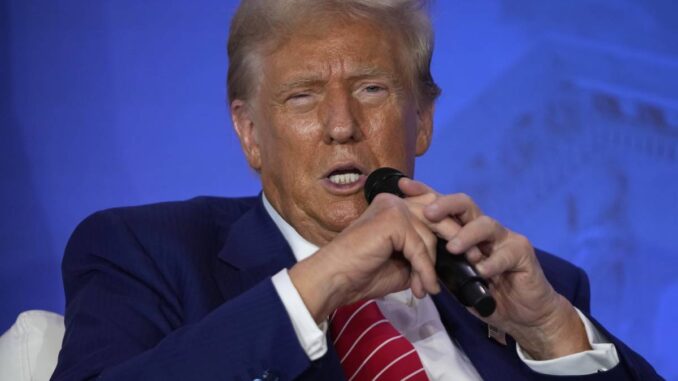
A SECOND Donald Trump presidency could lead to slower economic growth and increased challenges for the Philippines as the country is particularly vulnerable to his proposed policies.
“We remain of the view that, similar to Trump’s first term, the Philippines will be among the most vulnerable through various channels,” Japan’s Nomura said in a report released on Tuesday.
The direct risk for the Philippines would be in terms of trade, the global financial services group noted, as Trump has proposed the imposition of a 10-percent tariff on all products imported into the US.
Merchandise trade will likely “be hurt,” Nomura said, and services exports could also be affected if Trump moves to limit outsourcing.
It noted that the Philippines’ goods surplus, which has risen in the last few years under outgoing President Joe Biden, had now been outpaced by the services surplus at 1 percent of gross domestic product (GDP) as most business process outsourcing (BPO) firms cater to US clients.
“While Trump has not been explicit about bringing back jobs to America, the risk is similar policies might affect BPO revenues, which was clearly the case in his first term,” Nomura added.
Services exports growth was said to have halved to 5.1 percent in 2017 to 2019 during the first Trump presidency and remittance growth also slowed to just under 4 percent.
This suggests that a tightening in US immigration policy could affect the amount of money sent back to the Philippines by migrant Filipinos, which Nomura pegged as comprising 3.1 percent of GDP.
Money sent home by overseas Filipino workers hit $37.2 billion last year, up 3 percent from a year earlier.
The impact on trade and remittances could lead to economic growth slowing by 0.2 percentage point, Nomura said, albeit still manageable given forecast 2025 GDP growth of 6.1 percent — below the government’s 6.5- to 7.5-percent target.
A pause in the US Federal Reserve’s (Fed) easing cycle to assess the impact of Trump’s tariffs on inflation, meanwhile, is not likely to derail rate cuts by the Bangko Sentral ng Pilipinas (BSP) unless the duties are imposed much earlier.
The BSP’s policymaking Monetary Board acted ahead of the Fed last month, cutting the policy rate by 25 basis points to 6.25 percent.
Nomura previously said that two more 25-basis-point reductions could be delivered this year with room for three additional cuts in 2025.
A Trump win could also lead to increased geopolitical tensions in the South China Sea if the US, the Philippines’ strongest ally, reduces its military presence.
Beijing is likely to continue its “assertiveness,” Nomura said, and “rising tensions might increase the risk of more serious confrontation, in our view.”
President Ferdinand Marcos, who has moved to repair ties with the US following his predecessor’s pivot to China, has sought Biden’s support and declared that the Philippines would not yield to Chinese pressure.
Biden, for his part, has declared that the US’ defense treaty with the Philippines is “ironclad.”


Be the first to comment